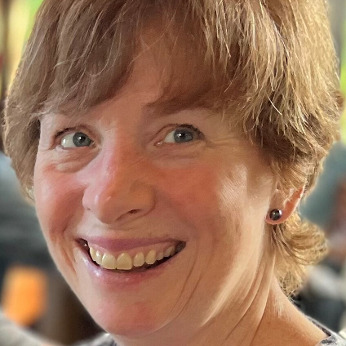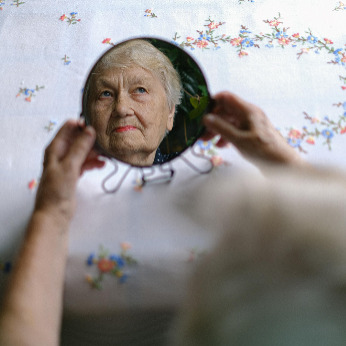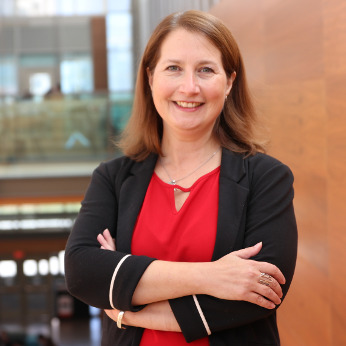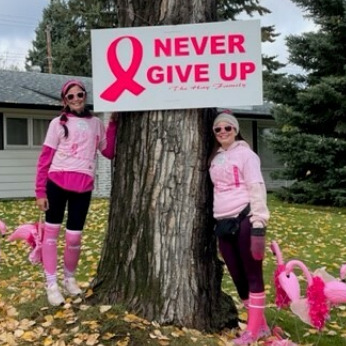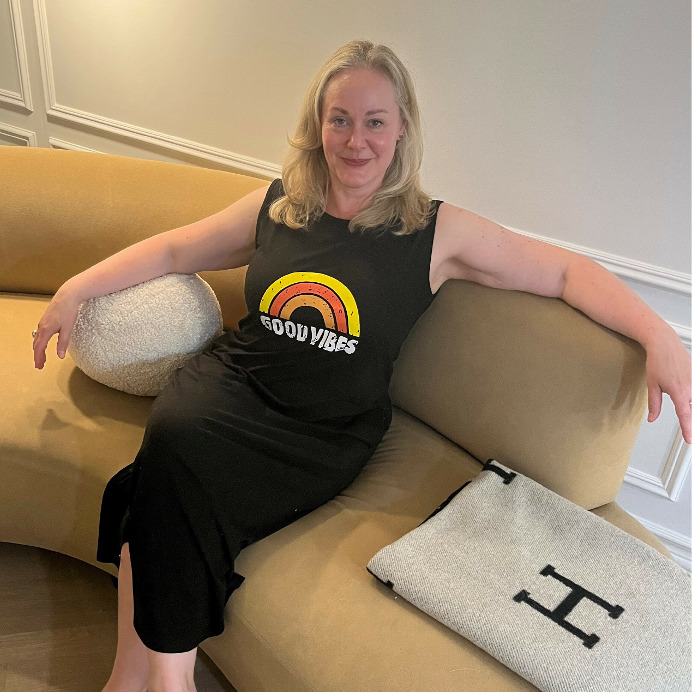By continuing to use our site, you consent to the processing of cookies, user data (location information, type and version of the OS, the type and version of the browser, the type of device and the resolution of its screen, the source of where the user came from, from which site or for what advertisement, language OS and Browser, which pages are opened and to which buttons the user presses, ip-address) for the purpose of site functioning, retargeting and statistical surveys and reviews. If you do not want your data to be processed, please leave the site.
The Voice of People With Breast Cancer
Education
Our Voices Blog
Tag : metastatic breast cancer
Understanding Metastatic Breast Cancer Recurrence
Metastatic breast cancer may come back months or even years after the original diagnosis and treatment. Even after successful treatment, some cancer cells may stay in the body without being detected. This can be a scary and overwhelming experience but understanding what’s happening and what to expect can help you make informed decisions about your health.
What Were You Reading? Our Top 10 Blog Posts of 2024
As we look ahead to 2025, we reflect on the incredible strides made in breast cancer awareness, research, and support. The past year brought new insights, inspiring stories, and innovative developments in breast cancer research. To kick off the new year, we've curated a list of blog posts that have generated the greatest interest in our community over the past year.
Living Well With Metastatic Breast Cancer
October 13 is Metastatic Breast Cancer Awareness Day. As of 2020, approximately 168,000 women in the U.S. were living with metastatic breast cancer (mBC), which is a projected 31% increase from 2010. This type of cancer, also called stage IV or advanced breast cancer, means it has metastasized, or spread, to other areas in the body such as the liver, lungs, brain, or bones.
Tears and Laughter – My MBC Story part 3
My adrenaline now pumping, I knew what she was going to ask. I was already reaching into the back of a dark closet as the rep faintly suggested, “You wouldn’t happen to have…?” “Yes!” I replied excitedly. It was the Thursday before Easter and the cancer centre was closing for the four-day weekend, but I promised to scan the documents and email them to the rep before her return on Tuesday. My initial consultation with the lead oncologist was scheduled for the following Friday and there was no time to lose. “Let’s get this show on the road!” I rallied.
Why Stopping Cancer Treatment Can Be About Living, Not Dying
Firstly, I want to say that I am not sharing my story to encourage anyone to quit treatment. Please don’t! This is risky. I’m really rolling the dice here. I am choosing my quality of life over longevity. That’s not for everyone. I had been unable to tolerate any of the aromatase inhibitors (AI; a type of hormonal therapy used to lower estrogen levels to slow or stop cancer growth), so I felt I had little choice but to pursue other options.
Tears and Laughter – My MBC Story part 2
I don’t need to tell you what was happening between 2019 and 2023. By May of 2022, I’d received four COVID-19 vaccinations and felt confident to attend a musical production with my niece. We were front row centre and seemed to be the only patrons with masks, soon discarded I must confess. When I found myself coughing a few days later I assumed it was COVID that I’d picked up in the theatre and left it to my presumed immunity to deal with.
TNBC: Who’s at Risk?
Treatment can be difficult for this type of breast cancer. Without receptors, triple negative tumors do not have the proteins they need to respond to common breast cancer treatments like hormone and targeted therapy, which are used for hormone-positive or HER2-positive breast cancer. Research shows that some people have a greater chance of developing triple-negative breast cancer (TNBC) if they are subject to certain risk factors.
Latest Research from SABCS 2023 – Metastatic
There was an abundance of promising new research that came out of the 2023 San Antonio Breast Cancer Symposium. Here are some highlights for metastatic breast cancer. Be sure to check out our early-stage highlights.
For Lorraine’s Sake
Our mother had breast cancer in her 50s, which increased her two daughters’ risk of also developing breast cancer. In 2005, my sister, Lorraine Smith, who was 41, enrolled in an early detection program and had her first mammogram. At the time, mammography reports were not disclosed to the patients, and they were not told anything about the density of their breasts, and what it means.
Q&E Sessions: A Surgical Oncologist Answers Your Questions About Breast Cancer Clinical Trials
In today’s post, we provide the questions that were sent in and asked during the live session of our Questions and Experts session held on October 3, 2023. In this session, Surgical Oncologist Dr. Mark Basik answers your questions about clinical trials. In the parentheses, you’ll find the timestamp of where to find the question in the on-demand video.
Breast Cancer Research Highlights from the ESMO Congress 2023
The European Society of Medical Oncology held their annual congress in Madrid, Spain from October 20-24, 2023. Members of the CBCN team had the opportunity to attend and learn about the latest research to be announced for breast cancer. Here are some of those highlights.
Q&E Sessions: A Medical Oncologist Answers Your Questions about Care and Considerations for Older Patients
In today’s post, we provide the questions that were sent in and asked during the live session of our Questions and Experts session held on September 19, 2023. In this session, Dr. Tina Hsu, MD, FRCPC answers all your questions about navigating a breast cancer diagnosis at an older age. In the parentheses, you’ll find the timestamp of where to find the question in the on-demand video.
Navigating Emotions, Identities, and Finding Hope
Colleen Packer of Calgary felt a wide range of emotions when she was diagnosed with metastatic lobular breast cancer in 2019: “Shock. Frustration. Fear. Grief. I sobbed. Initially in that first year, it had a really huge impact. Now it has become more routine. Now I feel a lot more in control. It’s a strange mix of feelings to have. It’s both/and. It’s possible to feel happy and sad, angry, grateful, afraid, and confident all at the same time. All those feelings are valid, and you need to provide space for all those feelings because they’re all very much a part of the experience.
Stronger Together: Sharing Genes and Breast Cancer Journeys
My name is Cortney Drover, and my identical twin sisters’ name is Connie Claeys. We are 37-year-old females living with Stage IV metastatic breast cancer, and being identical twins, we both carry the BRCA2 gene. Here is our story.
Metastatic Breast Cancer Should be Important to Us All
According to research from the National Cancer Institute, the number of women being diagnosed with metastatic breast cancer is increasing; at the same time, these women are living longer, especially younger women. Living longer with metastatic breast cancer, a stage of breast cancer which is driven in part by out-of-control production of proteins by cancerous cells, means increased needs for services and research.
Free Your Mind: Five Must-know Free Psychotherapy Resources
A breast cancer diagnosis can leave you feeling winded, like you’ve been socked in the stomach and can’t breathe, or even think for that matter. That’s how I felt. I had no emotion, no tears and no anger when I first heard the words “you have breast cancer.” My mind and body simply froze and everything around me, including my mind, went hazy. I attribute this now to shock, which, in my opinion, is a fairly reasonable reaction to receiving such life-changing news. And while the haziness eventually wore off, the surrealness of my new reality remained overwhelming.
How Breast Cancer Transformed Colleen’s Leadership Career
If you found out that you had a life-limiting illness, would you tell your colleagues at work? If you did, would they think you’re less capable of doing your job? That was the dilemma that Colleen Packer faced when she was diagnosed with metastatic breast cancer in 2019.
The Cancer Time Warp
It’s safe to say that most of us believe, kind of like the-sky-is-blue believe, that the past, present, and future are the logical chronology of time. Even mathematical equations, which I am terrible at, define time as the measure of the duration that exists between each sequence of these events. So how come when it comes to breast cancer, time is so fucked up? It would be so much more manageable if we, individuals diagnosed with cancer, could just live in the present.
Neutropenia and Febrile Neutropenia
Neutropenia is a condition caused by lower-than-normal amounts of neutrophils, a type of white blood cell. Neutrophils fight infection in the body by killing harmful bacteria and other blood-borne pathogens. The most common cause of neutropenia during breast cancer treatment is chemotherapy, though other types of cancer medicine can also cause it. Chemotherapy can cause neutropenia because it kills rapidly dividing cells, such as cancer cells. It can also affect other quickly dividing cells in our bodies, including white blood cells, red blood cells, and platelets. When chemotherapy destroys too many white blood cells, neutropenia occurs.
Ringworm: Tamoxifen’s Secret Side Effect
Trapped beneath my bra, cotton t-shirt and cropped pants, pools of sweat mingled with dust and grime before being absorbed into my clothes and skin. Despite the cold showers I soaped up under twice daily, one before heading out into the wee hours of the morning and another again in the dark of night before crawling under a thin sheet to sleep, the dirty damage was done. A skin fungus had formed. I had ringworm.








